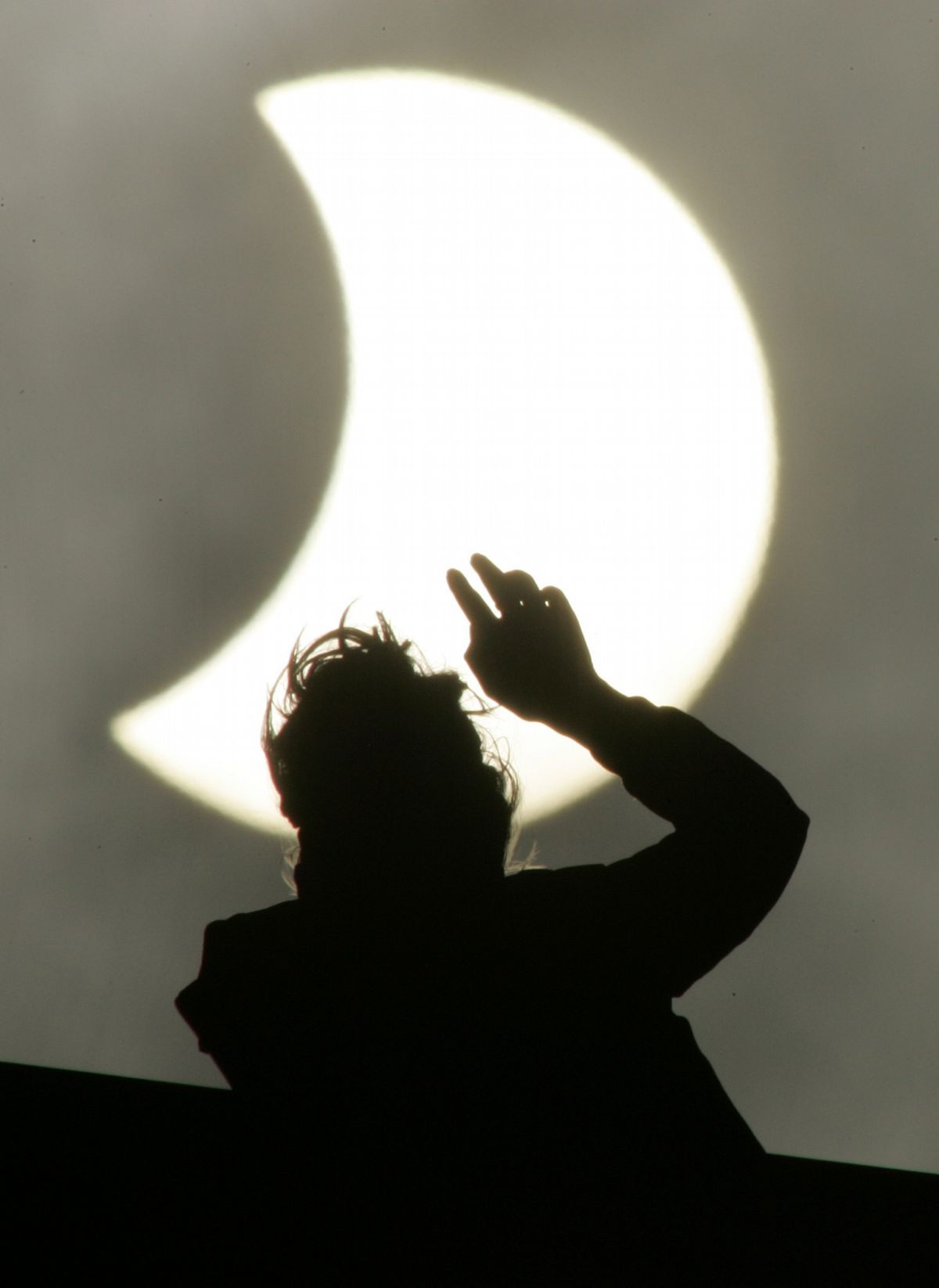Eclipse spans Arctic to China
Olympics hosts treat event as good omen

XI’AN, China – Finally, China had an act of nature it could celebrate.
After an Olympic year of freakish natural disasters, crowds of Chinese watched a total solar eclipse along the country’s ancient Silk Road on Friday, one week before the start of the Summer Games in Beijing.
It was a welcome respite after a 2008 that began with heavy snowstorms at the Chinese New Year, followed by China’s deadliest earthquake in a generation, then river flooding – even a huge algae bloom at the Olympic sailing site. Online, some Chinese murmured about curses.
But Friday evening, the eclipse – once a bad omen for China’s imperial rulers – was cheered by a country eager for any auspicious sign before the games. State media called China’s first solar eclipse of the century the “Olympics eclipse,” and TV stations broadcast it live.
“Listen, I think everyone hopes this will bring some luck,” said Xiao Ning, one of hundreds of people watching on the old city wall in Xi’an as the eclipse darkened the sky near sunset in this ancient capital and Silk Road terminus.
Told by the local newspaper’s front-page story to watch the eclipse safely through darkened film, people held up X-rays of teeth and other bones, tearing the sheets into smaller pieces to share with others.
The eclipse began in the Canadian Arctic, then passed over Greenland, western Siberia and Mongolia before reaching China.
It took a poetic course across China, where the first recorded solar eclipse was found scratched into Shang Dynasty oracle bones more than 3,000 years ago.
Following the northern route of the ancient Silk Road, it passed over the western desert county of Yiwu, where about 10,000 tourists gathered to watch after astronomers said it would have the best view; over Dunhuang, where the oldest known map of the stars was found in a desert cave a century ago; and over Jiuquan, where China launched its first manned spaceflight.
The eclipse trailed off just beyond Xi’an in the central China region once considered by Chinese to be the center of the world.
In ancient times, a solar eclipse was believed to be a dragon eating the sun. Emperors were blamed and had to apologize for angering the heavens.
Later, being able to predict the eclipses and show control over the skies became so political that some eclipse reports apparently were manipulated, said John B. Henderson, a history professor at Louisiana State University who has written about Chinese cosmology.
“Eclipses were reported where none took place, in areas of political or bureaucratic strife,” Henderson said. “It may have been a means of voicing dissent.”